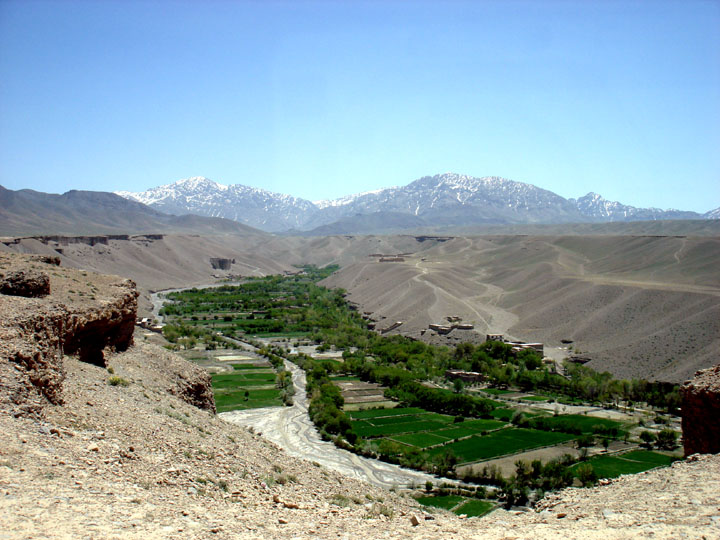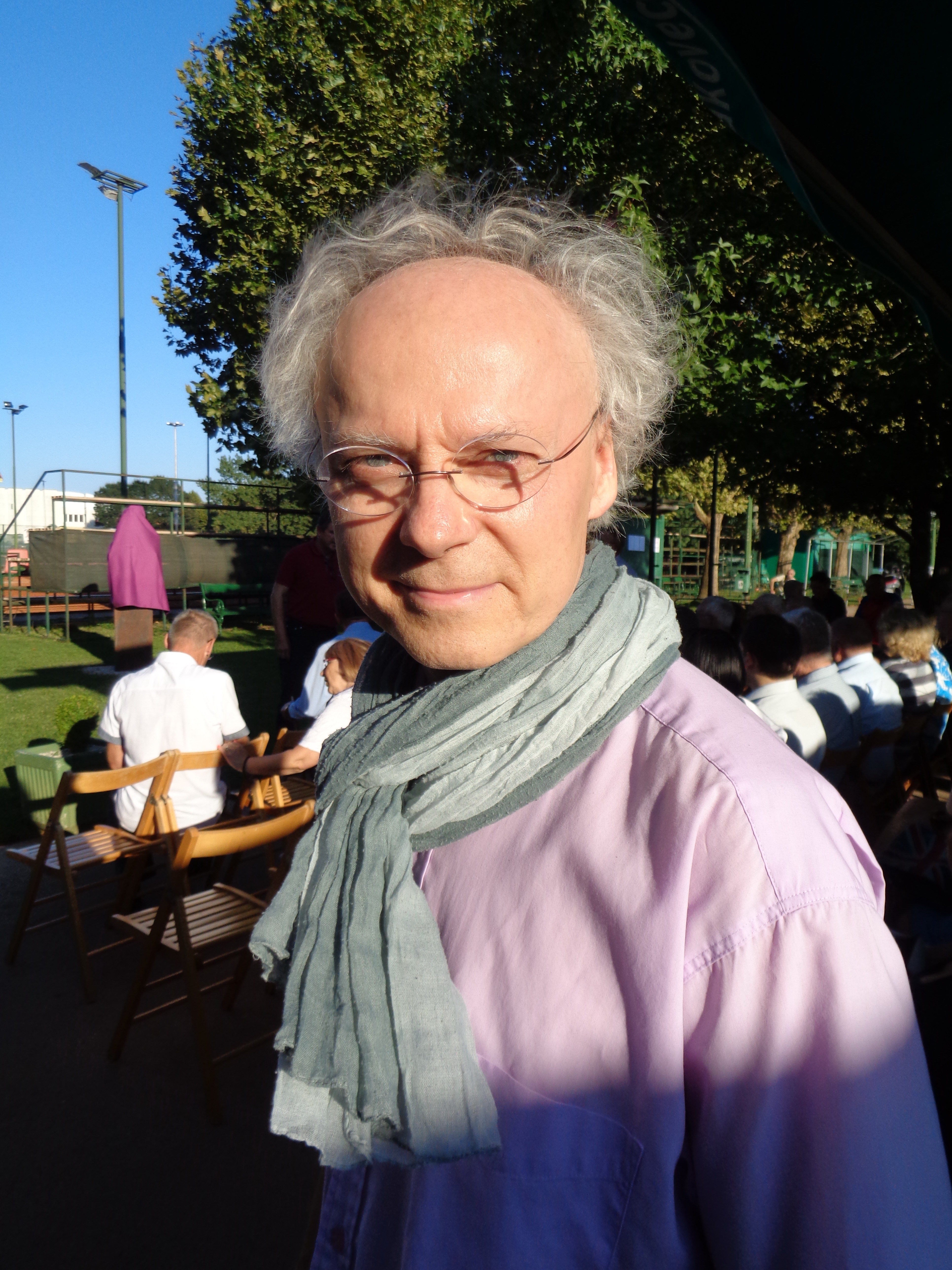|
Khushi District
Khokhi District is located in the East part of Logar Province, Afghanistan. 80 km away from Kabul and 18 km from Pul-i-Alam centre of Logar Province. Centre of the district is called Khoshi and the population is made up of Pashtuns , Tajiks and Hazara, accounting for 65%, 34%, 1% of the total population respectively. Geography Khoshi is a long narrow green valley, beginning from Qala-e-Wazer of Pul-i-Alam and ending into Lata Kora mountain in Dobandi with a length of 38 km. Khoshi is situated at an elevation of about 2,250 meters above sea level which, covering an area of 477 km2. The district is surrounded by Mohammad Agha, Pul-i-Alam, Jaji, Azra and Baraki Barak. Villages The district has 86 villages and is divided into four parts (Khoshi, Karizona, Manai, and Dobandi). Main villages where Pashtuns Pashtuns (, , ; ps, پښتانه, ), also known as Pakhtuns or Pathans, are an Iranian ethnic group who are native to the geographic region of Pa ... [...More Info...] [...Related Items...] OR: [Wikipedia] [Google] [Baidu] |
Logar Province
Logar (Pashto/Dari: ; meaning Greater Mountain ( لوې غر)) is one of the 34 provinces of Afghanistan located in the eastern section of the country. It is divided into 7 districts and contains hundreds of villages. Puli Alam is the capital of the province. As of 2021, Logar has a population of approximately 442,037. It is a multi-ethnic tribal society, while about 65% of its residents are made up by Pashtuns whereas the remainder are Tajiks and Hazaras. The Logar River enters the province through the west and leaves to the north. History Pre Islamic era A 2,600-year-old a Zoroastrian fire temple was found at Mes Aynak (about 25 miles or 40 kilometers southeast of Kabul). Several Buddhist stupas and more than 1,000 statues were also found. Smelting workshops, miners’ quarters (even then the site's copper was well known), a mint, two small forts, a citadel, and a stockpile of Kushan, Sassanian and Indo-Parthian coins were also found at the site. Recent history ... [...More Info...] [...Related Items...] OR: [Wikipedia] [Google] [Baidu] |
Afghanistan
Afghanistan, officially the Islamic Emirate of Afghanistan,; prs, امارت اسلامی افغانستان is a landlocked country located at the crossroads of Central Asia and South Asia. Referred to as the Heart of Asia, it is bordered by Pakistan to the Durand Line, east and south, Iran to the Afghanistan–Iran border, west, Turkmenistan to the Afghanistan–Turkmenistan border, northwest, Uzbekistan to the Afghanistan–Uzbekistan border, north, Tajikistan to the Afghanistan–Tajikistan border, northeast, and China to the Afghanistan–China border, northeast and east. Occupying of land, the country is predominantly mountainous with plains Afghan Turkestan, in the north and Sistan Basin, the southwest, which are separated by the Hindu Kush mountain range. , Demographics of Afghanistan, its population is 40.2 million (officially estimated to be 32.9 million), composed mostly of ethnic Pashtuns, Tajiks, Hazaras, and Uzbeks. Kabul is the country's largest city and ser ... [...More Info...] [...Related Items...] OR: [Wikipedia] [Google] [Baidu] |
Pul-i-Alam
Puli Alam ( prs, پل علم), also spelled Pul-i-Alam or Pol-e Alam, is the provincial capital of Logar Province, Afghanistan as well as of Puli Alam District. The population of the district is estimated to be around 108,000, and is composed of ethnic Pashtuns and Tajiks. The city of Puli Alam itself had a population of 22,914 in 2015. it has 4 districts and a total land area of 3,752 hectares. The total number of dwellings in the city is 2,546. In August 2021, Puli Alam was seized by Taliban fighters as part of the wider 2021 Taliban offensive. History Puli Alam underwent a lot of reconstruction work after the fall of the Taliban government. A provincial reconstruction team, PRT Logar of the Czech Republic, was based in Puli Alam. Climate Puli Alam is at high altitude. It features a hot-summer humid continental climate (''Dsa'') under the Köppen climate classification The Köppen climate classification is one of the most widely used climate classification systems. It ... [...More Info...] [...Related Items...] OR: [Wikipedia] [Google] [Baidu] |
Pashtuns
Pashtuns (, , ; ps, پښتانه, ), also known as Pakhtuns or Pathans, are an Iranian ethnic group who are native to the geographic region of Pashtunistan in the present-day countries of Afghanistan and Pakistan. They were historically referred to as Afghans () or xbc, αβγανο () until the 1970s, when the term's meaning officially evolved into that of a demonym for all residents of Afghanistan, including those outside of the Pashtun ethnicity. The group's native language is Pashto, an Iranian language in the Indo-Iranian branch of the Indo-European language family. Additionally, Dari Persian serves as the second language of Pashtuns in Afghanistan while those in the Indian subcontinent speak Urdu and Hindi (see Hindustani language) as their second language. Pashtuns are the 26th-largest ethnic group in the world, and the largest segmentary lineage society; there are an estimated 350–400 Pashtun tribes and clans with a variety of origin theories. The total popul ... [...More Info...] [...Related Items...] OR: [Wikipedia] [Google] [Baidu] |
Tajiks
Tajiks ( fa, تاجيک، تاجک, ''Tājīk, Tājek''; tg, Тоҷик) are a Persian-speaking Iranian ethnic group native to Central Asia, living primarily in Afghanistan, Tajikistan, and Uzbekistan. Tajiks are the largest ethnicity in Tajikistan, and the second-largest in Afghanistan and Uzbekistan. They speak varieties of Persian, a Western Iranian language. In Tajikistan, since the 1939 Soviet census, its small Pamiri and Yaghnobi ethnic groups are included as Tajiks. In China, the term is used to refer to its Pamiri ethnic groups, the Tajiks of Xinjiang, who speak the Eastern Iranian Pamiri languages. In Afghanistan, the Pamiris are counted as a separate ethnic group. As a self-designation, the literary New Persian term ''Tajik'', which originally had some previous pejorative usage as a label for eastern Persians or Iranians, has become acceptable during the last several decades, particularly as a result of Soviet administration in Central Asia. Alternative names for t ... [...More Info...] [...Related Items...] OR: [Wikipedia] [Google] [Baidu] |
Hazara People
The Hazaras ( fa, , Həzārə; haz, , Āzərə) are an ethnic group and the principal component of the population of Afghanistan, native to, and primarily residing in the Hazaristan (Hazarajat) region in central Afghanistan and generally scattered throughout Afghanistan. They are one of the largest ethnic groups in Afghanistan, and are also significant minority groups in neighboring Pakistan, mostly in Quetta, and as well as in Iran. They speak the Hazaragi dialect of Persian, which is mutually intelligible with Dari, one of the two official languages of Afghanistan. Hazaras are considered to be one of the most persecuted groups in Afghanistan, and their persecution has occurred various times across previous decades. Etymology The etymology of the word "Hazara" remains disputed, but some have differing views on the term. *Babur, founder of the Mughal Empire in the early 16th century, records the name "Hazara" in Baburnama. He has mentioned "Hazara" as "Turkoman Hazaras" se ... [...More Info...] [...Related Items...] OR: [Wikipedia] [Google] [Baidu] |
Dobandi
Dobandi is a village of Haripur District in Khyber-Pakhtunkhwa, Pakistan Pakistan ( ur, ), officially the Islamic Republic of Pakistan ( ur, , label=none), is a country in South Asia. It is the world's List of countries and dependencies by population, fifth-most populous country, with a population of almost 24 ..., it is located at 34°2'0N 72°56'0E with an altitude of 490 metres (1610 feet). References Populated places in Haripur District {{Haripur-geo-stub Qila Abdullah District ... [...More Info...] [...Related Items...] OR: [Wikipedia] [Google] [Baidu] |
Mohammad Agha
Muhammad ( ar, مُحَمَّد; 570 – 8 June 632 CE) was an Arab religious, social, and political leader and the founder of Islam. According to Islamic doctrine, he was a prophet divinely inspired to preach and confirm the monotheistic teachings of Adam, Abraham, Moses, Jesus, and other prophets. He is believed to be the Seal of the Prophets within Islam. Muhammad united Arabia into a single Muslim polity, with the Quran as well as his teachings and practices forming the basis of Islamic religious belief. Muhammad was born approximately 570CE in Mecca. He was the son of Abdullah ibn Abd al-Muttalib and Amina bint Wahb. His father Abdullah was the son of Quraysh tribal leader Abd al-Muttalib ibn Hashim, and he died a few months before Muhammad's birth. His mother Amina died when he was six, leaving Muhammad an orphan. He was raised under the care of his grandfather, Abd al-Muttalib, and paternal uncle, Abu Talib. In later years, he would periodically seclu ... [...More Info...] [...Related Items...] OR: [Wikipedia] [Google] [Baidu] |
Azra
Azra was a Croatian and Yugoslav rock band that was one of the most popular acts of the Yugoslav new wave music of the 1980s. Azra was formed in 1977 by its frontman Branimir "Johnny" Štulić. The other two members of the original line-up were Mišo Hrnjak ( bass) and Boris Leiner (drums). The band is named after a verse "''Und der Sklave sprach: “Ich heiße Mohamet, ich bin aus Yemen, Und mein Stamm sind jene Asra, Welche sterben, wenn sie lieben.”''" (trans. "''My name is El Muhamed/From the tribe of the old Azras/who die for love/And die when they kiss!''") from "Der Asra" by Heinrich Heine. They are considered to be one of the most influential bands from the Yugoslav new wave rock era and the Yugoslav rock scene in general. They released their first single in 1979 with songs "Balkan" and "A šta da radim". The first album named ''Azra'' was published in 1980 and achieved commercial success and popularized Azra in Yugoslavia. Their second album was released in 1981. Azra ... [...More Info...] [...Related Items...] OR: [Wikipedia] [Google] [Baidu] |
Baraki Barak
Barakī Barak (Dari/Pashto/Ormuri: برکی برک) is a town and the center of Baraki Barak District, Logar Province, Afghanistan. It was also the former capital of Logar Province. The town is in a mountainous area in the valley of the Logar River. The main road Ghazni-Kabul passes about 20 km to the West of the town. The town is named after the historical Ormur tribe, also locally known as ''Baraki''. Ethnography Baraki Barak has historically been home to the Ormur tribe, also known as "Burki" or "Baraki", and to other Pashtuns and Tajiks. The town is named after the Baraki people, some of whom still speak the Ormuri (Baraki) language; they live to the northwest and west of the town, and also inside the town. See also *Kaniguram *Baraki Rajan Baraki Rajan (Dari/Pashtun: برکی راجان) is a town within the Baraki Barak District of Logar Province, Afghanistan. Baraki Rajan lies approximately 3 km south of the town of Baraki Barak, the capital of the Baraki Bara ... [...More Info...] [...Related Items...] OR: [Wikipedia] [Google] [Baidu] |
Shia
Shīʿa Islam or Shīʿīsm is the second-largest Islamic schools and branches, branch of Islam. It holds that the Prophets and messengers in Islam, Islamic prophet Muhammad in Islam, Muhammad designated Ali, ʿAlī ibn Abī Ṭālib as his Succession to Muhammad, successor (''khalīfa'') and the Imamah (Shia doctrine), Imam (spiritual and political leader) after him, most notably at the event of Ghadir Khumm, but was prevented from succeeding Muhammad as the leader of the Muslims as a result of the choice made by some of Companions of the Prophet, Muhammad's other companions (''ṣaḥāba'') at Saqifah. This view primarily contrasts with that of Sunni Islam, Sunnī Islam, whose adherents believe that Muhammad did not appoint a successor before Death of Muhammad, his death and consider Abu Bakr, Abū Bakr, who was appointed caliph by a group of senior Muslims at Saqifah, to be the first Rashidun, rightful (''rāshidūn'') caliph after Muhammad. Adherents of Shīʿa Islam are c ... [...More Info...] [...Related Items...] OR: [Wikipedia] [Google] [Baidu] |





